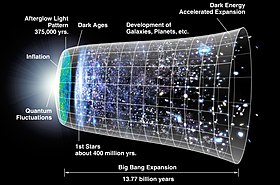Kenny wrote:Kurieuo wrote:Kenny wrote:Kurieuo wrote:You know, I think that we can and do know. But, whether we know that our knowledge is 100% correct
-- obviously such certainty can never be had by subjective beings on anything.
Good point! Just because one knows doesn't mean they are correct.
To clarify this last point --
the difference I see between "knowledge" and "lack of knowledge" is that
knowledge carries with it reasonable justification.
One can still be reasonably justified, even justified in their belief beyond all reasonable doubt, and still be wrong.
It is how the court of law ends up giving the death penalty to innocent people, right? (even when due process is followed)
In such cases, it's just that the court, jury and legal system ended up with a wrong knowledge resulting in a failure of justice.
So when I say that I believe God created the universe, and that I know this to be the case,
I'm saying my belief is based upon reasonable evidence and arguments that lead to this conclusion being rationally justified.
I agree! Of course, "reasonable justification" is subjective; what one person considers reasonable may not be to another, but your points are well stated; I agree.
Ken
Subjective, but also objective.
For example, argumentative proofs are quite objective.
A -> B, A therefore B.
If someone asserts A implies B, A therefore C -- well that just doesn't follow no matter how much they think it reasonable.
There are many informal fallacies too which help to identify suspect arguments.
For example, if the first cat I saw was orange, I'd then be wrong to hastily generalise that all cats are orange.
In addition to formal and informal logic, mathematics is universal knowledge.
It is quite objective, right?
Then we have experiential knowledge, which we accept as empirical justification.
But, by no means is such the only way we can gain knowledge.
So our beliefs and ideas can be put to the test in more objective ways.
The belief in, for example, the spaghetti monster, is no where near as justified as belief in God.
Or the belief in the universe coming from
absolutely nothing, something so absurd couldn't be as justified as believing God created.
No matter how confused and convoluted some zealous Atheists try to express to the contrary, it's better going with a multiverse than that!

In any case, we may find arguments for/against God's existence more or less convincing.
BUT, then, I don't believe it will do to simply ignore them, or to reject them based upon our subjective tastes.
Preferring one belief over another because we like chocolate more than strawberry isn't "reasonable justification".
Rather, the arguments themselves should be dealt with in a logical and rational manner.
Many on boards like this, think they always have to be right, and not give into any argument (I include myself in that).
If they admit an argument on the opposing side is very good then such is the just terrible - the worst thing imaginable.
Really, when gloves are off and we walk away, if we can't think of one good argument for the other side, then that probably shows an unhealthy bias.
We should be able to admit to a good argument when we see one, even if ultimately we think it must be wrong for whatever other reasons.

